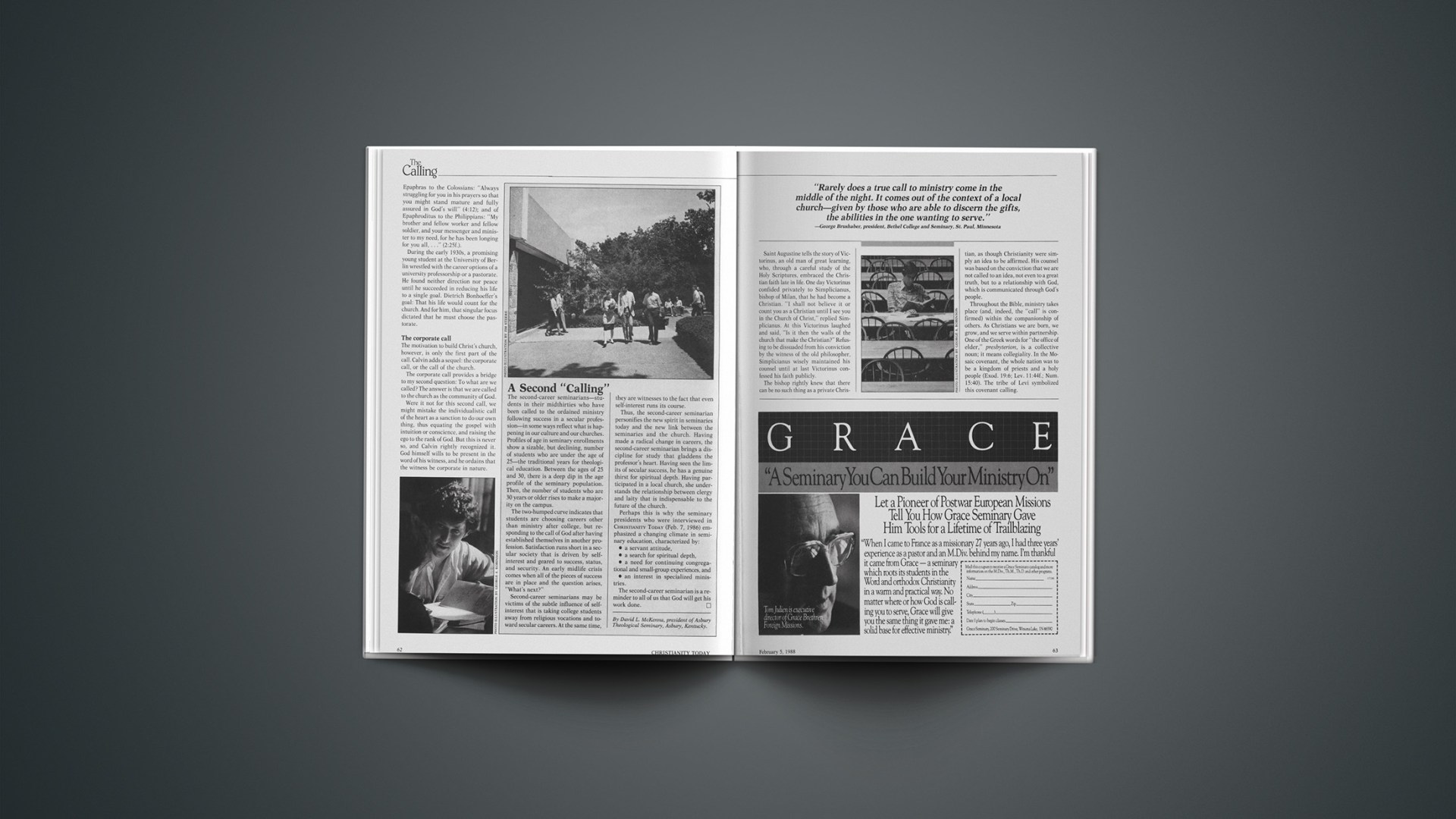The second-career seminarians—students in their midthirties who have been called to the ordained ministry following success in a secular profession—in some ways reflect what is happening in our culture and our churches. Profiles of age in seminary enrollments show a sizable, but declining, number of students who are under the age of 25—the traditional years for theological education. Between the ages of 25 and 30, there is a deep dip in the age profile of the seminary population. Then, the number of students who are 30 years or older rises to make a majority on the campus.
The two-humped curve indicates that students are choosing careers other than ministry after college, but responding to the call of God after having established themselves in another profession. Satisfaction runs short in a secular society that is driven by self-interest and geared to success, status, and security. An early midlife crisis comes when all of the pieces of success are in place and the question arises, “What’s next?”
Second-career seminarians may be victims of the subtle influence of self-interest that is taking college students away from religious vocations and toward secular careers. At the same time, they are witness to the fact that even self-interest runs its course.
Thus, the second-career seminarian personifies the new spirit in seminaries today and the new link between the seminaries and the church. Having made a radical change in careers seminarian brings a discipline for study that gladdens the professor’s heart. Having seen the limits of secular success, he has a genuine thirst for spiritual depth. Having participated in a local church, she understands the relationship between clergy and laity that is indispensable to the future of the church.
Perhaps this is why the seminary presidents who were interviewed in Christianity Today (Feb. 7, 1986) emphasized a changing climate in seminary education, characterized by:
- a servant attitude,
- a search for spiritual depth,
- a need for continuing congregational and small-group experiences, and
- an interest in specialized ministries.
The second-career seminarian is a reminder to all of us that God will get his work done.
By David L. McKenna, president of Asbury Theological Seminary, Asbury, Kentucky.










